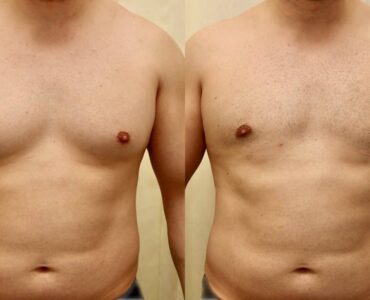Many people focus on oral hygiene during the day but overlook its impact on sleep. However, the relationship between oral health and sleep is more significant than it might seem. Poor oral health can affect the quality of your sleep, and certain sleep disorders can, in turn, have a negative impact on your teeth and gums. Understanding the connection between oral health and sleep can help you take proactive steps to improve both.
The Link Between Oral Health and Sleep
There are several key ways in which oral health and sleep are intertwined:
1. Sleep Apnea and Oral Health
One of the most well-known connections between sleep and oral health is sleep apnea. This disorder occurs when a person’s airway becomes blocked during sleep, causing breathing to stop and start throughout the night. People with sleep apnea often breathe through their mouths, which can lead to dry mouth (xerostomia). Dry mouth increases the risk of oral health problems such as:
- Cavities: Saliva is essential for neutralizing acids in the mouth and washing away food particles. A lack of saliva due to mouth breathing increases the risk of tooth decay.
- Gum Disease: Dry mouth can also lead to an increase in harmful bacteria, which may contribute to gum disease (gingivitis and periodontitis).
- Bad Breath: A dry mouth is a common cause of bad breath, as bacteria thrive in the absence of saliva.
Additionally, people with sleep apnea are more likely to grind their teeth (bruxism), which can damage tooth enamel, cause jaw pain, and lead to other dental problems.
2. Bruxism (Teeth Grinding) and Sleep
Bruxism, or the involuntary grinding and clenching of teeth during sleep, is another common sleep-related disorder that can harm oral health. It is often caused by stress or anxiety but can also be associated with sleep apnea. The repeated grinding of teeth can:
- Wear Down Enamel: Over time, the constant grinding of teeth can wear down the enamel, making teeth more vulnerable to decay and sensitivity.
- Cracked or Chipped Teeth: Excessive grinding can lead to cracked, chipped, or fractured teeth, which may require restorative treatments like fillings, crowns, or even root canals.
- Jaw Pain and TMJ Disorders: Bruxism can cause tension in the jaw muscles, leading to pain, discomfort, and temporomandibular joint (TMJ) disorders.
Many people with bruxism are unaware they have the condition since it occurs while they sleep. Dentists can often detect the signs of teeth grinding during regular checkups by examining wear patterns on the teeth.
3. Oral Health Problems Disrupting Sleep
Oral health issues such as cavities, gum disease, and infections can also interfere with sleep. Pain or discomfort in the mouth can make it difficult to fall asleep or stay asleep. For example:
- Toothache: Severe tooth pain, often caused by cavities or infections, can keep you awake at night. The pain may worsen when lying down due to increased blood flow to the head.
- Gum Infections: Gum infections like abscesses can cause swelling and discomfort, leading to poor sleep quality.
- Snoring and Mouth Breathing: Snoring, often associated with sleep apnea, can dry out the mouth and lead to an increased risk of oral health issues, as well as disrupt sleep for both the individual and their partner.
How Poor Sleep Affects Oral Health
Just as oral health problems can affect sleep, poor sleep habits can negatively impact oral health. Here’s how:
1. Weakened Immune System
Sleep deprivation weakens the immune system, making the body less capable of fighting off infections, including those in the mouth. When your immune system is compromised, you are more susceptible to gum disease and other oral infections.
2. Increased Risk of Inflammation
A lack of quality sleep is linked to increased inflammation throughout the body, including the gums. Chronic inflammation can contribute to the development of periodontal (gum) disease, which affects the tissues and bones that support the teeth.
3. Higher Stress Levels
Poor sleep often leads to higher stress levels, which can worsen conditions like bruxism. Stress can also make it harder to maintain good oral hygiene habits, such as brushing and flossing regularly.
Tips for Improving Oral Health and Sleep Quality
To improve both your oral health and sleep, consider the following strategies:
1. Treat Sleep Apnea
If you suspect that you have sleep apnea, it’s important to seek a diagnosis and treatment from a healthcare professional. Treatments for sleep apnea may include using a continuous positive airway pressure (CPAP) machine, oral appliances, or lifestyle changes like losing weight. Addressing sleep apnea can improve sleep quality and help prevent dry mouth, teeth grinding, and other oral health issues.
2. Wear a Night Guard for Bruxism
If you grind your teeth at night, wearing a custom night guard can protect your teeth from damage. A dentist can create a custom-fitted night guard that provides a barrier between your upper and lower teeth, reducing the impact of grinding.
3. Practice Good Oral Hygiene
Maintaining a consistent oral hygiene routine is key to preventing cavities, gum disease, and other oral health problems. Brush your teeth at least twice a day with fluoride toothpaste, floss daily, and use mouthwash if recommended by your dentist. For those who breathe through their mouths at night, using a moisturizing mouth rinse may help combat dry mouth.
4. Stay Hydrated
Drinking plenty of water throughout the day can help prevent dry mouth by stimulating saliva production. Avoid caffeine and alcohol close to bedtime, as these can lead to dehydration and contribute to dry mouth while sleeping.
5. Visit the Dentist Regularly
Regular dental checkups are essential for catching oral health issues early, especially if you experience symptoms related to bruxism or sleep apnea. Your dentist can monitor your oral health and recommend treatments if needed.
6. Reduce Stress
Since stress is a common cause of teeth grinding, managing stress through relaxation techniques like meditation, yoga, or deep breathing exercises can help reduce bruxism and improve sleep quality.
Conclusion
Oral health and sleep are closely connected, and taking care of both is essential for your overall well-being. Conditions like sleep apnea and bruxism can negatively affect your teeth and gums, while poor oral health can lead to disrupted sleep. By addressing sleep disorders, maintaining good oral hygiene, and visiting your dentist regularly, you can improve the quality of your sleep and protect your oral health for the long term.




